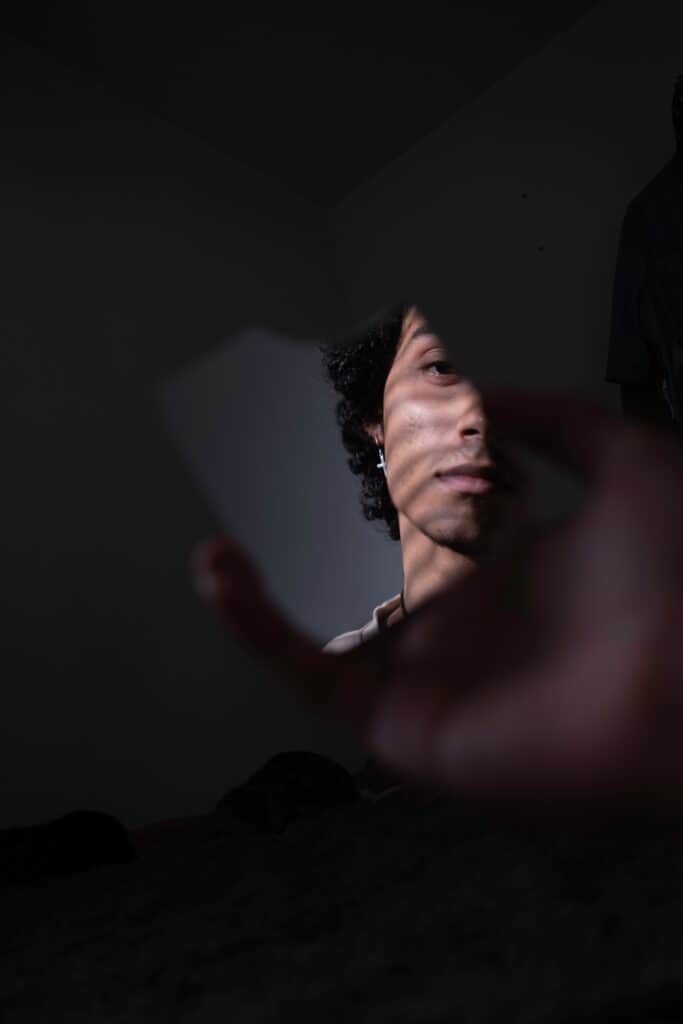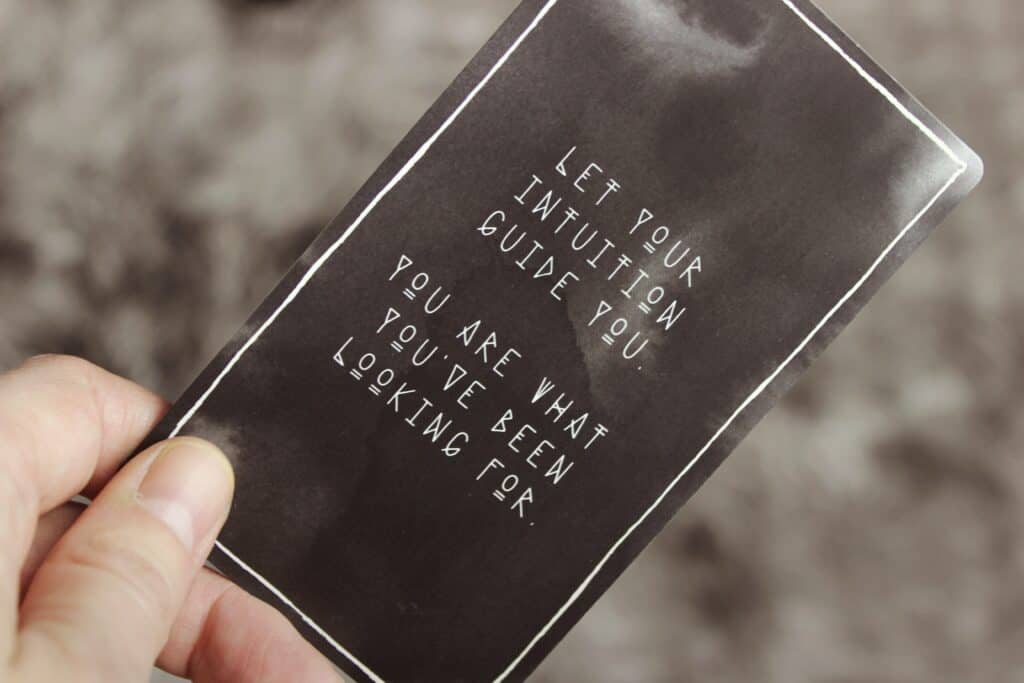Self-awareness can feel incredibly elusive. What does it truly mean to be self aware? And what happens when we change and evolve? This makes self-awareness a constant journey. Something to curate into a habit. The ability to know who we are. Our thoughts, feelings but also our values and morals. What do we hold dear? How do we feel about the our life, others and the wider world? Where are our boundaries? Armed with this knowledge we are well-placed to face the world and pivot accordingly as our lives change.
For 4 Ways to Check In with Your Mental Health read here.
What to Listen For

- Learn to trust your gut. It knows what you want before thoughts and feelings may intrude. It’s honed by years of protecting you. It has your best instincts at heart.
- Give voice to your thoughts and feelings. Allow them to guide you but not drown out your gut instincts. Too often we don’t list to the vital information they hold.
- Know when to take a step back and when to push forward. Do so by acknowledging your strength and weakness. But also, how your mental health is. Sometimes it’s best to hold steady rather than progressing if we’re having a hard time.
- Feel your feelings. Don’t dismiss them but give yourself time to sit with them. Learn what they have to say, they all come from somewhere. They hold important messages and can guide you.
- Acknowledge when you need to apologise. Self-awareness is seeing all of ourselves, not just the nice parts. If there’s something you don’t like, take steps to change it.
How to Achieve Self Awareness?
Self-awareness helps us be in tune with all parts of ourselves. As per the list above, a lot of it is about getting to know ourselves better. But doing so is not always easy. Especially if we have got into habits of ignoring our emotions. Or avoiding the parts of ourselves that we like least. We may have good reason for doing this or others. They may have been self-preservation. But gradual awareness can help us feel more balanced and in touch with ourselves.
Check In
Our thoughts and feelings are key to self-awareness. We need to spend time with them, even the uncomfortable ones. We can be curious about where they come from and what they tell us. Feeling alone is an indication we need to be with people more. Or that we are feeling disconnected despite being physically with others. Resentment may tell us we are feeling left out or wish for something we do not yet have. Guiding us to seek out what need. Checking in can take all forms from creative outlets such as art, music or writing. Or simply spending time each day to think about how we feel in peace and quiet or even meditation.
Gauge Reactions

How we react to a given situation can reveal a lot about ourselves. If we feel our buttons being pressed or have experiences that leave us feeling a certain way. This is all important information. It may indicate that we need to assert firmer boundaries or create some new ones. Taking a step back from situations or removing people from our life may be the answer. These situations are likely to happen when our values are dismissed or undervalued. And therefore a moment to acknowledge what is important to us.
For The 9 Tips You Need to Hold Boundaries read here.
Ask for Feedback
Whilst our reactions are important, so are people’s reactions to us. Likewise, to continue to grow we may wish to ask for feedback on select occasions and from specific people. We don’t have to change because of the feedback. That is entirely up to us and what we wish to do with the information. But self-awareness means seeing all of us. Even the bits we may or may not like. Getting feedback from others may help us acknowledge those things; our weaknesses. But they may also help us see our strengths. Particularly if we find it hard to own them.
Take Yourself on a Date

How often do you spend time with yourself? Finding enjoyment in your own company? I imagine not many of us do. But spending time with oneself is an important skill. At the end of the day, we are whom we spend the most time with. Being someone you like and approve of is far more important than anyone else’s opinion. So, take yourself out and do something you enjoy. Find out what it is truly like to be you apart from anyone else.
For Intentional Self Care and Why You Need It read here.
Invest in Yourself
On our journey of self-awareness, and it is that. It’s not something you do once but something that grows as we do. It’s good to remember to invest in yourself and what you enjoy. Make time for the things you love, especially as you learn more about them. Hold your boundaries and create new ones or be more flexible with old ones as needed. Spend time with yourself and your thoughts and feelings. Decide to learn something new and take a step forward. Or look after yourself and hold steady where you are.
What does self-awareness look like to you? How do you practise it? Do you find it an easy process? As always, let us know below.

This was a really useful reminder to make sure we’re tuned in to ourselves and nurture self-awareness (a skill I think a lot of us need to work on as it’s sometimes seen as something we don’t need to do — which is inaccurate). Thanks for sharing!